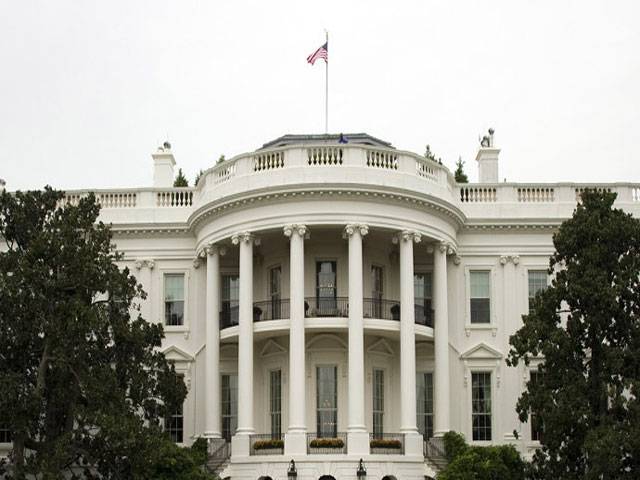WASHINGTON - The White House has said it has no reason to believe that the senior Pakistani officials had knowledge about the location of Al-Qaeda chief Osama bin Laden, who was killed in a Navy Seals operation in Abbottabad in May 2011.
“As US officials have said, we have no reason to believe that anyone in the highest levels of the government knew about the location of Osama bin Laden. That continues to be true,” Laura Lucas Magnuson, a spokesperson for the National Security Council said.
The reiteration of US position by the White House spokesperson came in response to a question about allegations made in an article published in The New York Times on Wednesday that some senior Pakistani officials knew about Osama bin Laden’s location. The Obama administration has consistently maintained that it has got no evidence indicating that the top Pakistani leadership knew about the presence of the world’s most wanted terrorist in Pakistan.
Meanwhile, responding to the Times report, a spokesperson of the Pakistani Embassy in Washington noted that senior US officials “have on a number of occasions stated on record that they had seen no intelligence linking Government of Pakistan and any of its agencies to OBL’s presence in Abbottabad.”
“To still believe, otherwise, and to resurrect the issue through unnamed sources and unconfirmed reports does not deserve attention,” the Embassy spokesperson remarked.
However, journalist Carlotta Gall of The New York Times reported that the then ISI chief Ahmed Shuja Pasha knew of Osama bin Laden’s presence in Pakistan.“Soon after the Navy SEAL raid on Osama bin Laden’s house, a Pakistani official told me that the US had direct evidence that former ISI Chief Ahmed Shuja Pasha knew of Osama bin Laden’s presence in Abbottabad,” according to the excerpts of her upcoming book.
“The information came from a senior US official, and I guessed that the Americans had intercepted a phone call of Pasha’s or one about him in the days after the raid. ‘He knew of Osama’s whereabouts, yes,’ the Pakistani official told me,” the journalist wrote in the daily.
“The official was surprised to learn this and said the Americans were even more so,” she wrote.
Pasha was an energetic opponent of the Taliban and an open and cooperative counterpart for the Americans at the ISI.
“Pasha was always their blue-eyed boy,” the official said. “But in the weeks and months after the raid, Pasha and the ISI Press office strenuously denied that they had any knowledge of Osama’s bin Laden’s presence in Abbottabad,” she added.
Staff Reporter from Islamabad adds: The Pakistan Army has rejected a report published in an American newspaper as baseless and ridiculous.
A text message sent by military officials to journalists on Thursday quoted Inter-Services Public Relations (ISPR) Director General Maj-Gen Asim Saleem Bajwa as saying that the allegations of Carlotta Gall in New York Times on March 19 were baseless and ridiculous. “Nothing is new and credible and all allegations have already been proven false,” he said.
Titled “What Pakistan knew about bin laden,” the report said the Pakistan government under President Pervez Musharraf and his intelligence chief, Lt-Gen Ashfaq Parvez Kayani, was maintaining and protecting the Taliban, both to control many groups of militants, now lodged in the country, and to use them as a proxy force to gain leverage and eventually dominate Afghanistan.
According to the report, soon after the Navy SEAL raid on bin Laden’s house, the United States had direct evidence that ISI chief Lt-Gen Ahmed Shuja Pasha knew of bin Laden’s presence in Abbottabad. The report quoted an inside source to contend that the Inter-Services Intelligence (ISI) actually ran a special desk assigned to handle bin Laden. The report said, “It was operated independently, led by an officer who made his own decisions and did not report to a superior. He handled only one person – bin Laden.”
Presently, Carlotta Gall is the North Africa correspondent for the NYT. She covered Afghanistan and Pakistan for the paper from 2001 to 2013.
Friday, April 19, 2024
Pak leadership didn’t know about OBL location: WH
ISPR rejects US media report as baseless

Caption: Pak leadership didn’t know about OBL location: WH
Opposition objects to oath-taking of MNAs amid lawlessness
5:15 PM | April 19, 2024
Electioneering to end on Friday night ahead of by-polls in 21 constituencies
5:14 PM | April 19, 2024
Fawad Chaudhry granted bail in 14 cases related to May 9 violence
5:13 PM | April 19, 2024
British Army chief lauds Pakistan Army's professionalism, expertise
5:12 PM | April 19, 2024
Israeli aircraft fire missiles at Air Force assets in Iran: Report
3:52 PM | April 19, 2024
A Tense Neighbourhood
April 19, 2024
Dubai Underwater
April 19, 2024
X Debate Continues
April 19, 2024
Hepatitis Challenge
April 18, 2024
IMF Predictions
April 18, 2024
Kite tragedy
April 19, 2024
Discipline dilemma
April 19, 2024
Urgent plea
April 19, 2024
Justice denied
April 18, 2024
AI dilemmas unveiled
April 18, 2024
ePaper - Nawaiwaqt
Advertisement
Nawaiwaqt Group | Copyright © 2024





